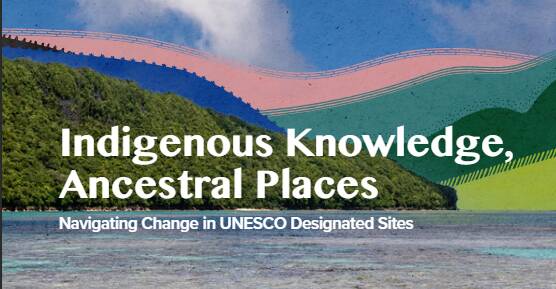Indigenous knowledge, ancestral places: navigating change in UNESCO designated sites
UNESCO has released a new publication and on-line resource ‘Indigenous Knowledge, Ancestral Places: Navigating Change in UNESCO Designated Sites’, featuring 21 stories of Indigenous expertise, innovation, and creativity from territories around the globe.
The Publication
The publication represents UNESCO’s first comprehensive effort to show the deep linkages of culture and nature—a principle central to many Indigenous approaches to safeguarding natural and cultural resources.
Indigenous Peoples have been integral partners in the conservation of UNESCO sites – including Biosphere Reserves, Geoparks and World Heritage sites – shaping our understanding of the relationships between nature and culture, and between landscapes and identities.
The world’s approximately 476 million Indigenous people manage or hold tenure rights to around one quarter of the world’s surface area, including over half of its remaining intact forests and a large proportion of the global biodiversity. Drawing upon ancestral knowledge and close observation of the environment, Indigenous Peoples confront today’s challenges with dynamic, evolving knowledge and skills. They continually adapt to present-day realities while remaining grounded in cultural integrity.
This publication features a collection of testimonials and cultural, philosophical and intellectual expressions of Indigenous knowledge, values, practices, cosmologies and governance systems. They illustrate how these systems have sustained both people and landscapes across the planet.
Although they are among the least responsible for climate change, Indigenous Peoples are on the front lines of its impacts. Yet, they are uniquely positioned to lead with locally rooted, time-tested solutions. A common thread throughout this collection is their deep, place-based knowledge of lands, waters and ecosystems – knowledge that has sustained life for generations

